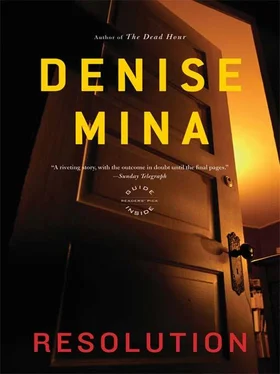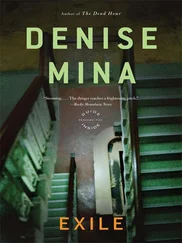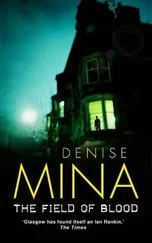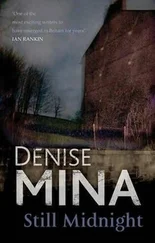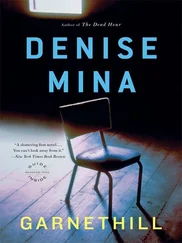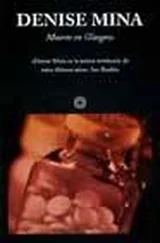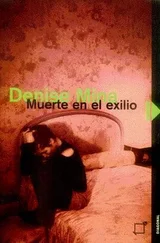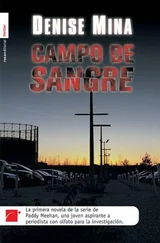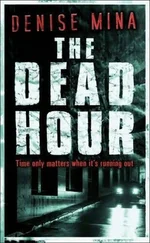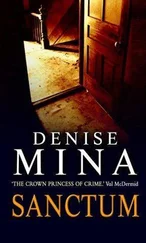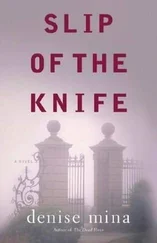"What the fuck is she bitter about? She wanted a kid, she's got one, she's got a good job and a nice house. Marriages split up but she's not exactly on her uppers, is she?"
"Yeah, well." Liam sighed and scratched his neck. "Una had hopes, I think."
"More fool her," muttered Maureen, watching the moonlight creep about the garden.
"I don't know if it is foolish," said Liam. "I think it's kind of hopeful. Coming out of Winnie and George's house and dreaming of a good life. It was one of the things I liked most about her. She's as sour as a leech now."
"Yeah?"
"Aye. Sees badness everywhere. It's a shame. Bitterness is a terrible thing. Sucks the good out of everything. What would you hope for? If you could have anything."
Maureen smiled at the thought of herself having a future but Liam was earnest. "Dunno," she said, looking out into the dark garden. "Maybe I'd go back to college. I'd be a curator and be surrounded by beautiful things. I'd be content, I suppose. Stop worrying all the time."
He tutted derisively, as if she'd never known a moment's grief. "What are you worried about?"
"What've ye got?" she said, chewing an imaginary match.
"Just you bide your time, wee hen," said Liam softly. "Don't worry about Michael. You'll see, one day soon, everything'll come up, Maureen."
Maureen smiled and nodded, but she knew she would be watching Michael night after night just to know where he was in the city.
SKANK
The Sheriff Court was a huge building facing the river with modernist columns in gray granite and windows set well back, giving it a solemn, unwelcoming air. Maureen had been fresh and clean when she left the market but during the short walk across the bridge the hot sun made her legs damp and her skirt ride up, the thin inner lining gathering around her waist. She kept expecting McGee's hand on her shoulder as she came off the bridge and followed the path to the imposing front steps. The doorway was four stories high, a smoked-glass window leading into a vast lobby and the hollow heart of the courts. Inside the door, security staff were gathered around a high-arched metal detector. Two large signs, one on each wall, ordered people to leave their knives, swords and guns outside. Maureen walked through the metal detector without setting it off and approached a reception desk. "I'm looking for the small-claims court," she said, and noticed that her voice sounded shaky.
The man behind the counter nodded her to a spiral staircase in the center of the lobby. "Court three," he said. "Up to the top."
Her knees were trembling as she climbed the stairs but she thought of Ella lying on the cold metal trolley in the makeshift chapel and took hold of the handrail firmly, pulling herself up. The door to the court was locked and the claimants had to wait on soft chairs in the corridor, facing one another, watching for their adversaries to come and sit next to them. An old man across from Maureen, dressed in his best cheap suit, scraped the sweat from his palms with the edge of an underground ticket. A woman next to him was twitching and being comforted by her tarty daughter in a pink plastic skirt and white vest top. Everyone had their papers with them, held in folders or envelopes, some with crumpled letters from the court, folded to fit into a pocket. Maureen sat down and watched the stairs. At exactly two thirty a small man in a blue uniform unlocked the door from the inside, pinning it open into the corridor.
The court was partitioned off into concentric circles by low wooden walls. In the center of the room stood a large, highly polished table with wigged and gowned lawyers sitting around it, speaking quietly to one another and looking through papers. The lawyers' strange outfits made them look like the perpetrators of a bizarre practical joke. Below the judge's bench, sitting alone, was a young woman with silver-rimmed glasses and a dark, sleek bob showing beneath her white wig. Surrounding the table was a low wooden partition wall with areas for hemming in the public, the jury and, farthest away and higher than everyone else, the judge's big fancy chair.
The man in the blue uniform told the public to sit down in the two rows of benches near the door. Maureen tried to get in first in case Si turned up and she had to sit near him, but everyone wanted to sit there. She had to settle for a seat next to the aisle. When they were all sitting down the bobbed woman lawyer explained that she was the clerk of the court. As their cases were called, she said, they were to stand up and come through the little partition gate to the big table and wait to be asked about the details.
"Only answer questions from the sheriff and only speak through the sheriff. Do not speak to each other while the sheriff is dealing with your case, is that clear?"
They nodded dumbly, and the blue man went off through a side door. The tarty girl giggled about something and her mother huffed in dismay. Maureen was watching them when, out of the corner of her eye, she saw a tall, slim woman slip in from the corridor and sit three benches back. She was wearing a smart gray trouser suit with a pale slate scarf. She settled her expensive leather handbag on her knee, her gaze focused on air. It was Tonsa. She didn't look around, didn't try to find anyone among the crowd, but Maureen knew that Tonsa was there to warn her.
The usher came back out of the side door, told them all to stand up and the sheriff came in. He walked along the back row and sat down. The usher told them all they could sit down now, and they did.
Maureen looked around at the public benches. Everyone was frightened and apprehensive, not knowing what was going to happen next or what was expected of them. The sheriff called the first case and they relaxed back into their chairs as they realized it wasn't them. Two of the lawyers in the central pen stood up and told the sheriff that they were representing the respective parties to the case. They all muttered to one another and the sheriff read for a bit and told them to come back later. The bobbed clerk read through her papers and gave them a date. After a short read the sheriff called another case. The nervous mother with the tarty daughter leaped to her feet and turned this way and that, looking terrified. The usher beckoned her through the little partition and she stood at the table with the lawyers and waited expectantly while the sheriff read through the notes. The woman was shaking. Even the skin on her back seemed to be trembling under her nylon blouse. Behind Maureen the woman's tarty daughter giggled unhelpfully and told the man next to her to look, look at the state of her. When the sheriff finally asked her a question the nervous woman looked as if she might go into spasm. The sheriff asked if the other party was represented. One of the lawyers said he was there on behalf of someone or other. The sheriff told them to come back later and the clerk gave them a date.
This long and tedious process continued. Maureen was getting increasingly anxious. Tonsa wasn't looking at her: she was staring blindly ahead, not fidgeting like the other members of the public, sitting still like a snake laying a trap. Maureen looked her over. Her face was blank. She blinked, making Maureen jump and turn back to the court, afraid she had been spotted.
As she watched it became obvious that the sheriff hadn't read any of the papers and was so disinterested that all he could do was put the cases off for two weeks. Another set of disappointed people came back to their seats in the public benches, and she felt a gentle tap on her shoulder. Kilty was standing behind her, nudging along the bench to sit down. "Hiya," said Maureen, unreasonably excited in the circumstances.
"I skived off my work," whispered Kilty.
Читать дальше
